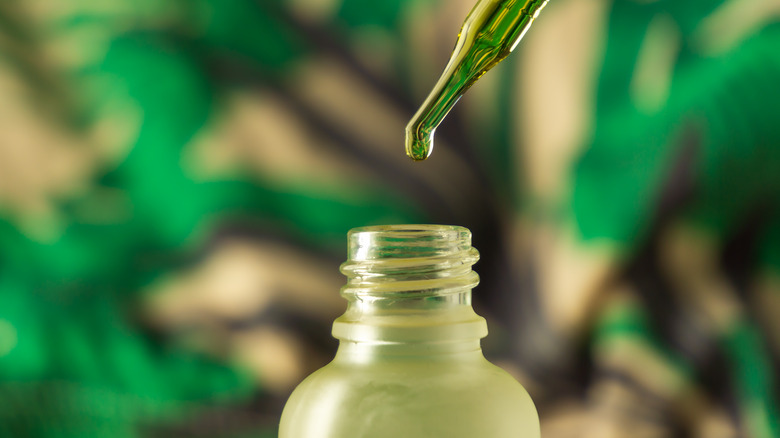FDA's Approval Of OTC Narcan Is Big News For Combating Opioid Overdoses
The U.S. Food and Drug Administration (FDA) has approved Narcan to be sold over-the-counter without a prescription. Narcan is a 4-milligram nasal spray form of the drug naloxone, which is used to treat opioid overdose. The drug will soon be available at local pharmacies, convenience stores, and online, but the FDA says it could take months to make the switch.
Narcan obtained FDA approval in 2015, but it was only available with a prescription until the drug's manufacturer, Emergent BioSolutions, could show that consumers could use the drug without the supervision of a medical professional. According to Emergent BioSolutions, someone dies from an opioid overdose every eight minutes. The FDA says that the United States saw more than 100,000 fatal drug overdoses last year, mostly from the synthetic opioid fentanyl.
"We can prevent overdoses and save lives by making naloxone more accessible, and at the same time, we can ensure equitable access to essential health care," U.S. Health & Human Services Secretary Xavier Becerra said in a news release. "Today's FDA action to allow access to naloxone without a prescription is another strong step forward in advancing HHS's Overdose Prevention Strategy."
CBD might boost naloxone's effects
According to the National Institutes of Health, opioids like fentanyl bind to the receptors in the brain that are associated with pain and emotion. Overdosing on fentanyl can slow or stop breathing to the point that people can lose oxygen to the brain and potentially die. Naloxone works by binding to these same receptors in the brain, thus blocking them from opioids. However, fentanyl is so strong that it sometimes requires more naloxone.
Along with the FDA's recent approval of non-prescription Narcan comes research to be presented at the American Chemical Society's spring meeting about how cannabidiol (CBD) can reduce the binding of fentanyl. Naloxone alone is less effective against synthetic opioids such as fentanyl because these synthetic drugs adhere to the brain's opioid receptors more tightly than morphine or heroin. The researchers altered the structure of CBD to create derivatives that would loosen fentanyl's binding on the brain's receptors and perform better than naloxone. Some of these derivatives worked synergistically with naloxone to block the effects of fentanyl.
One of the principal investigators, Alex Straiker, Ph.D., said that it's wise to find additional alternatives to naloxone. "Fentanyl-class compounds account for more than 80% of opioid overdose deaths, and these compounds aren't going anywhere — it's just too much of an economic temptation for dealers," Straiker said.
Michael VanNieuwenhze, Ph.D., the other principal investigator, hopes to find stronger alternatives to naloxone. But for now, they're satisfied with finding ways to make naloxone more effective.


